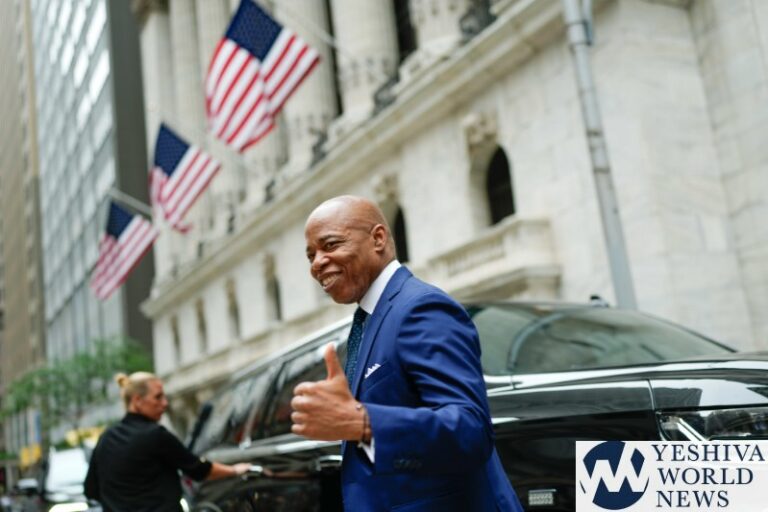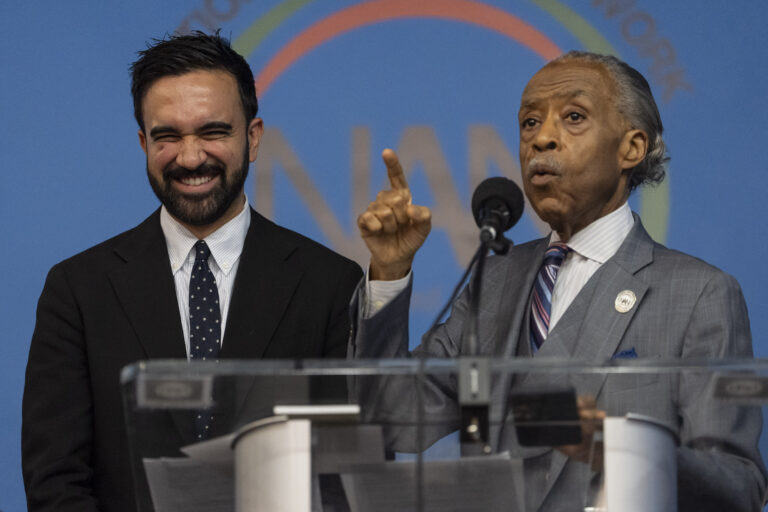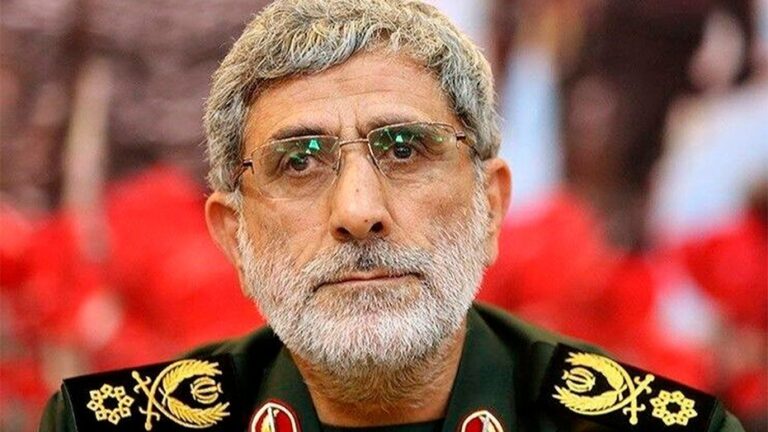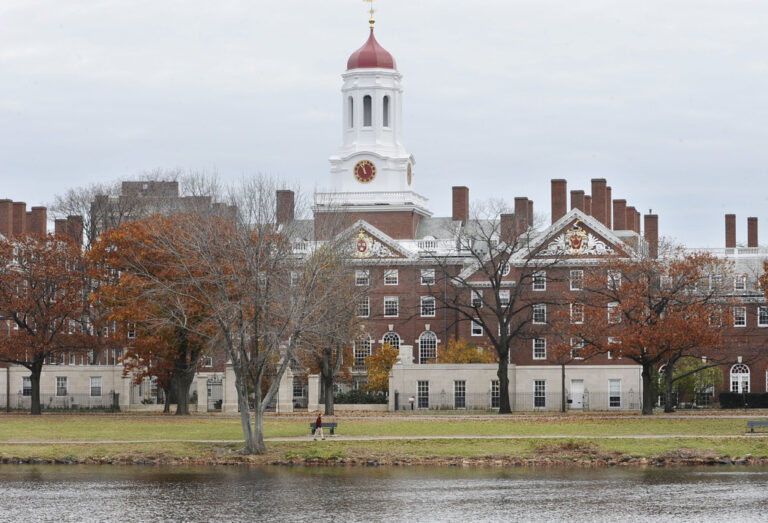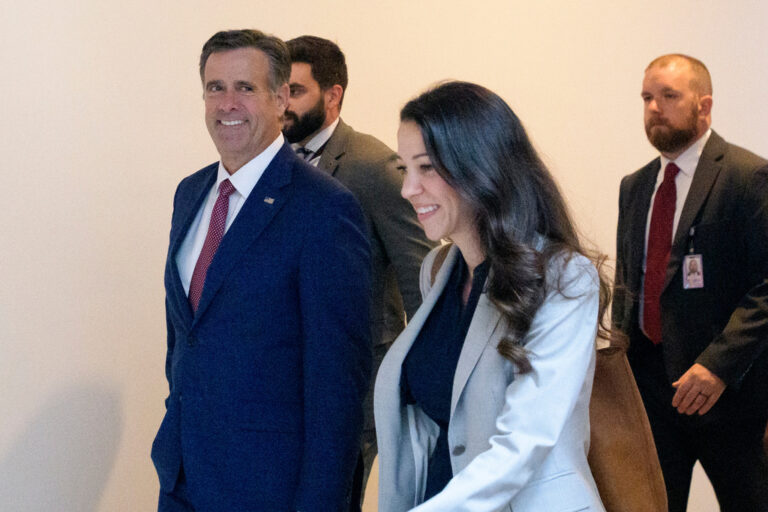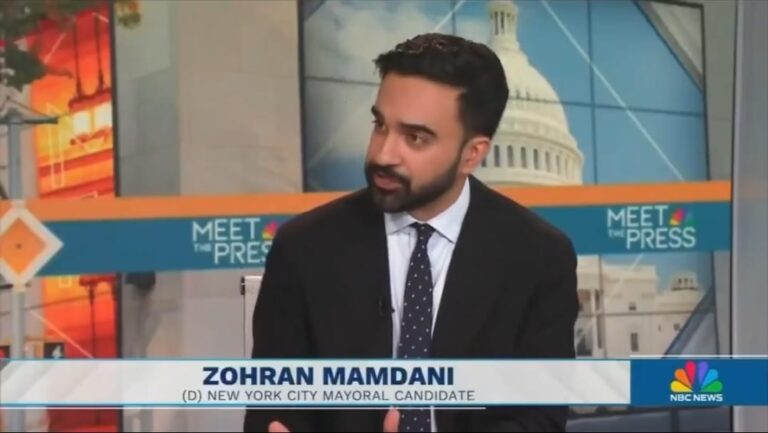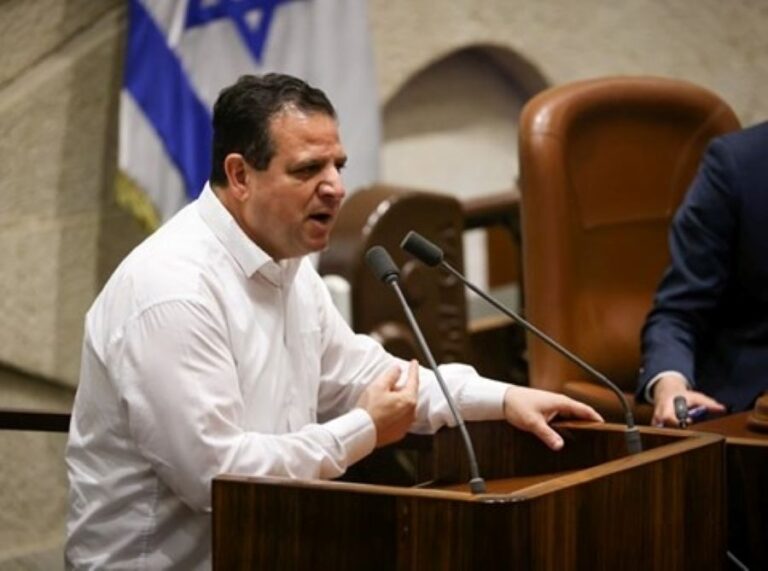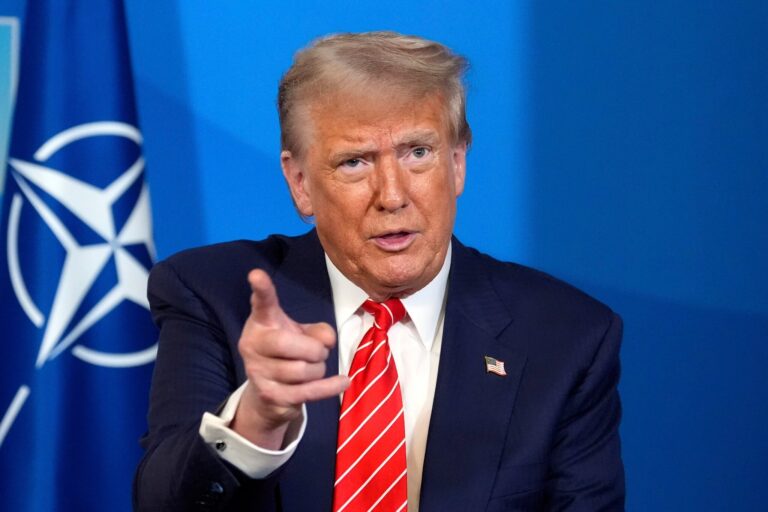 Hillary Clinton and Donald Trump surged Sunday toward another round of pivotal presidential primaries as their party leaders faced new questions about internal divisions that could complicate their nominees’ general election chances.
Hillary Clinton and Donald Trump surged Sunday toward another round of pivotal presidential primaries as their party leaders faced new questions about internal divisions that could complicate their nominees’ general election chances.
With less than 48 hours before voting begins across five Northeastern states, GOP front-runner Donald Trump looked to Tuesday’s contests, where he’s poised to do well, and to a foreign policy speech later in the week. Republican challenger Ted Cruz, meanwhile, abandoned the Tuesday states and instead campaigned in Indiana, which votes May 3.
On the Democratic side, underdog Bernie Sanders rallied thousands of voters in two New England states, seeking momentum even as he offered mixed signals on how hard he would push his differences with Clinton.
At a Providence, Rhode Island, park the Vermont senator largely steered clear of Clinton, but hours later ramped up his critique before more than 14,000 supporters in New Haven, Connecticut. Near Yale University, Sanders reiterated his call for Clinton to release transcripts of lucrative Wall Street speeches she delivered after leaving the State Department in early 2013.
“This campaign, unlike Secretary Clinton’s, has not raised $15 million from Wall Street and millions more from other special interests,” he said as the crowd booed at the mention of Clinton’s name. “This candidate has not given speeches behind closed doors on Wall Street for $225,000 a speech.”
Clinton hoped Tuesday’s contests in Rhode Island, Pennsylvania, Connecticut, Maryland and Delaware would mark a turning point in her quest for the Democratic nomination. Victories in four or five states would all but cripple Sanders’ White House bid.
The former secretary of state went to two Philadelphia church services attended largely by African-Americans ahead of the primary in Pennsylvania, Tuesday’s top delegate prize. She declined to attack her Democratic rival by name in the morning appearance and a subsequent stop in Bridgeport, Connecticut, focusing on the GOP candidates.
Clinton charged that rhetoric from Trump and Ted Cruz is “not only offensive, it’s dangerous.”
“The people who run for office on the tea party or whatever else and say they will never compromise, they are basically denying the fundamental tenets of democracy,” Clinton said.
Clinton, emerging stronger after a triumph in last week’s New York primary, stood to effectively lock up the nomination on Tuesday. The five states together offer 384 delegates, a trove that would put her only about 200 delegates short of the majority needed to clinch the nomination.
With 172 delegates at stake Tuesday on the Republican side, Trump could take a significant step toward his party’s delegate majority with the dominant performance that many polls predict.
Speaking to several thousand people in an airplane hangar in Hagerstown, Maryland Sunday evening, Trump stressed repeatedly that he expects to win the 1,237 delegates needed to stave off a contested convention in the first round of voting.
“I only care about the first. We’re not going for the second and third and fourth and fifth,” said Trump.
His rivals, Cruz and Ohio Gov. John Kasich, have been mathematically eliminated from earning the necessary 1,237 delegates and are instead trying to block Trump from the majority to force a contested national convention in July.
Trump has been railing against a “rigged” voting system and continued to hit that theme Sunday, accusing Cruz, who has badly out-maneuvered him in the race to lock down delegates, of “bribing” delegates to win their support.
“You probably read where Cruz is going and he’s wining and dining and dinners and hotels and all this stuff,” Trump told the crowd. “He’s bribing people, essentially, to vote.”
Cruz made no mention of Tuesday’s elections as he campaigned Sunday afternoon in Indiana, targeting Trump’s brash tone instead.
“We’re facing a choice. Do we want to be behind a campaign that is based on yelling, screaming and cursing and insulting?” Cruz asked.
A senior adviser, Paul Manafort, predicted that Cruz is “going to lose all five states and probably finish third in most of them” on Tuesday.
Manafort said the billionaire businessman’s campaign, not the candidate, was evolving as the general election neared, an attempt to clarify his recent comments to the Republican National Committee that Trump has been “playing a part” onstage and would soon start to display “more depth … the real person,” in new settings. That includes working with such Washington stalwarts as the Senate majority leader — even as Trump casts himself as the ultimate outsider.
“What we’re trying to do right now is work with the Mitch McConnells” on party business, Manafort said on “Fox News Sunday.”
“We have to work with these people,” he said. “What I was tasked to do this past week, including going to the RNC meeting, was to (convey) that the campaign cares about them and we will run some traditional elections.”
Meanwhile, both parties acknowledge deep intra-party divisions as the general election season approaches.
“It’s pretty split,” RNC Chairman Reince Priebus said of the GOP, noting that he’s aware that some Republicans are calling for a third-party bid to challenge Trump in the general election.
While Priebus said such a challenge was “a nothing burger,” any third-party bid or write-in campaign could doom the GOP in November.
Democratic National Committee Chair Debbie Wasserman Schultz downplayed tensions between Sanders and Clinton, whose rivalry has become increasingly nasty in recent weeks.
“Regardless of the intensity of what’s played out here … we are going to be unified,” she declared.
(AP)

